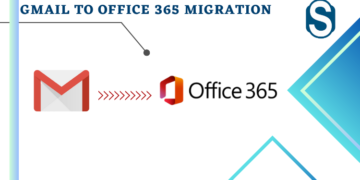In the customer-centric and fast-paced world we live in, companies are constantly looking for ways to engage with customers faster, smarter, and more efficiently. As we continue to move forward, the rapid development of customer service tools has opened up a new debate: Is call center software dead?
Spoiler alert: it is not dead. It is evolving, and what we are witnessing today is a powerful transition away from traditional call center tool and toward intelligent, multi-channel contact center solutions. But let’s look at what this evolution really means to businesses and why it matters.
The Beginning: Traditional Call Center Software
Traditional Call Center Software was built for a single purpose: handling high volumes of inbound and outbound voice calls. Traditional call center tool was designed to help manage businesses that relied primarily upon phone communication, employing technologies like automatic call distributors (ACDs), interactive voice response (IVR), and simple dashboards for reporting.
While it was effective and served its purpose at the time, this legacy technology did have limitations. Traditional call center systems were very reliant on voice, needed hardware, and were often rigid without the capability of integrating other business applications.
What Changed?
Customer communication has evolved in profound ways. Today’s customers expect support not just through calls, but through emails, live chats, social media, SMS, and even WhatsApp. They want personalized, consistent, fast service on every platform, and this shift to digital means that traditional call-only solutions are no longer enough.
These changes mean businesses needed more than just a phone system. They needed contact center solutions that encompass all elements of the customer engagement journey and manage all of the customer interactions businesses have across multiple channels.
Enter Modern Contact Center Solutions
Modern contact center solutions are more than an improved call center tool. They are cloud-based, AI-powered, omnichannel support solutions. Here’s essentially what makes them the new standard for the industry:
- Omnichannel Communication: These platforms can bring together phone, chat, email and social media into a single dashboard so agents have an awareness of previous context and can move fluidly between communication channels.
- Flexibility of Cloud-Based: No longer do businesses need to rely on heavy on-prem infrastructure. Cloud contact centers are flexible, scalable, mobile, and upgrades are less cumbersome.
- Advanced Analytics: Superiors can take advantage of real-time monitoring, sentiment analysis, and predictive analytics to make data-driven decisions versus hand-picking contact agents based on the previous day.
- Integration with CRMs: Modern contact center solutions easily integrate with CRM software, such as Salesforce or HubSpot, where agents can have an overview of customer & chat or any previous engagement.
Is Call Center Software Really ‘Dead’?
Not exactly. Call center software is not dead-it simply evolved. The term may be stale, but the function (voice support) is still a key component of every contact center solution. For many customers, voice calls are still the preferred communication medium, especially for complicated inquiries or sensitive matters.
But the market is demanding more than voice. If your business still operates through traditional call center software, you’re risking being obsolete.
Why This Evolution Matters
- Customer Expectations Have Risen
Instant responses and personalized support are no longer optional—they’re expected. - Business Continuity and Scalability
Modern Contact Center Solutions offer scalability for growing businesses and ensure seamless operation, even during unexpected disruptions. - Cost Efficiency
Cloud-based platforms reduce the need for physical infrastructure and maintenance costs. - Data-Driven Decisions
Real-time insights help businesses improve service quality, identify pain points, and enhance customer satisfaction.
Final Thoughts
Nothing in the customer service world is the same anymore-and your business must follow suit. Traditional call center software may have created a blueprint for structured customer portal, but we now live in the world of contact center solutions with an all-inclusive, intelligent, and unified approach.
Rather than asking if call center software is dead, the better question may be: Are you prepared for the future of customer engagement?
Modern contact centers are not just about handling calls, they are about managing relationships.
Want to enhance your customer service capability?
Research next-generation contact center solutions built for today’s digital-first customers. Don’t get left behind in the past-embrace the future of communication.

























